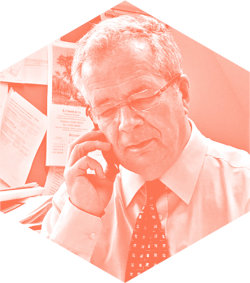As a sales person, your job is to generate enquiries, not to generate work per se. You want to be using market intelligence, spotting great projects and getting in touch, aiming for a chance to pitch for the work. At that point, it’s generally over to others in the company to meet, deliver a presentation, and put together a tender - but there are plenty of ways that sales can make that easier.
Pricing a tender is expensive, so your first responsibility is to make sure you’re chasing the right jobs. Ideally the lion’s share of enquiries coming in are from projects that you’ve picked in advance, so you already know that they’re appropriate to your skills and location, the right size and scope, and that they will fit into the schedule. This pro-active approach reduces wasted time in itself, because every job will be worth going for.
The second thing you can do is provide as much information as you can and give your estimators a good headstart. If you’ve been following a project, you may have picked up some of the details and logged them. If not, get on the phone and fill in the gaps:
- When is the tender coming out?
- Will it be on paper or electronic or both?
- How many others are tendering?
- What is the tender period?
- Are there any CDE’s – Contractor Designed Elements?
- And so on…
The more you know, the more prepared you can be. You can anticipate the client’s particular concerns about the job and make sure they’re addressed. This will demonstrate that you understand the project and that you’re genuinely interested, and it will set you above the competition.
Speaking of competition, if you know who else is tendering, you might spot a few ways to distinguish yourself. Depending on the others in the running, you could highlight that you’re a local company, or that you have specialist skills, or good case studies on similar projects nearby.
It might be helpful to include a more detailed cost and benefit analysis, or a construction program that enables the client to consider ways to secure a faster completion.
You’ll also be keeping in touch and following up, and that can open up new opportunities.
Perhaps the tender comes in over budget, for example. In which case, maybe your company can help with cost reductions. Prove yourselves helpful, and you could be the first choice for the job second time round.
Even with all the information and the best sales leads, you can’t win every tender – we’d usually be looking to win about one tender in four. If you’re making one in five or fewer, we’d suggest there are things you should be doing differently. And if you’d like some help with that, get in touch with CMS.
If you need a helping hand with your marketing, get in touch today. Download our Really Useful Guide to Construction Sales - and if you’re a member of the CIOB, you can read it as part of your continuing professional development.
